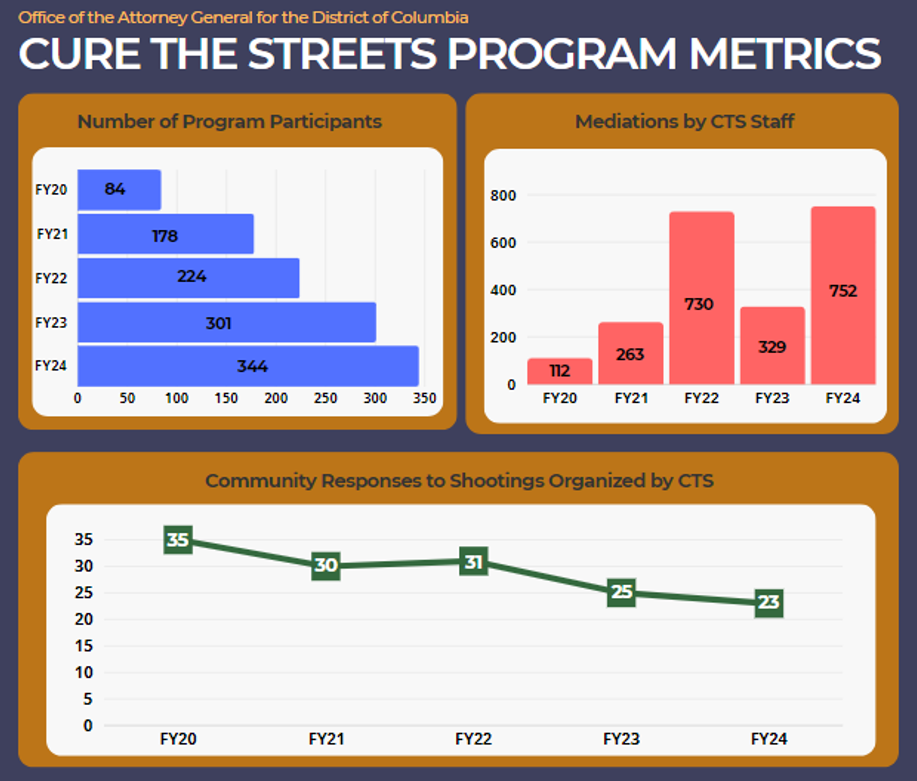What is Cure the Streets?
Cure the Streets is a public safety program launched by OAG aimed at reducing gun violence. It operates in discrete high violence neighborhoods using a data-driven, public-health approach to gun violence by treating it as a disease that can be interrupted, treated, and stopped from spreading. Read more about the program and get context for this data, here.
The Metrics
The goal of Cure the Streets is to reduce the frequency of shootings and gun homicides within the target areas. We track gun-related violent incidents in the target areas year over year and as compared to gun violence rates in the District overall. We also track data associated with the activities of the program.
When looking at this early data, bear in mind the following:
- The numbers are very small.
- Cure the Streets sites were specifically chosen because of their high rates of gun violence.
- Cure the Streets is designed to address certain types of gun crimes, those that result from reciprocal violence. It is not intended to address, for example, intimate partner violence or violence related to random crime.
- The data below track Assaults with Deadly Weapon offenses, where the weapon at issue was a gun (ADW Gun), and homicides where a gun was used.
- “Rest of District” includes all other non-Cure the Streets sites in the District (including any parts of the District that fall in areas where the Office of Neighborhood Safety and Engagement operates violence interruption programs).
All metrics below are by fiscal year (October 1 – September 30) or fiscal year to date.
Gun Incidents within Cure the Streets Sites
Last updated: 10/18/2024
Program Metrics Across All Cure the Streets Sites
Data Dictionary
ADW gun (Gun Assault with a Deadly Weapon): Incidents categorized by the Metropolitan Police Department (MPD) as an assault with a deadly weapon in which the weapon was a gun. Gun ADWs include any assault with a gun, including shooting or pointing a gun.
Community Responses to Shootings Organized by CTS: The number of community responses CTS mobilized in response to shooting incidents, in order to denounce violence, reclaim public space, provide public education, strengthen community ties, and ensure violence is not normalized.
Gun homicide: Incidents categorized by MPD as a homicide offense in which the weapon was a gun.
Mediations by CTS Staff: The number of conflicts in which CTS teams initiated an intervention as neutral mediators to help work towards peaceful resolution.
Number of Program Participants: The number of high-risk individuals with whom a CTS Outreach Worker is in active contact to reduce that individual’s likelihood of becoming involved in gun violence.



